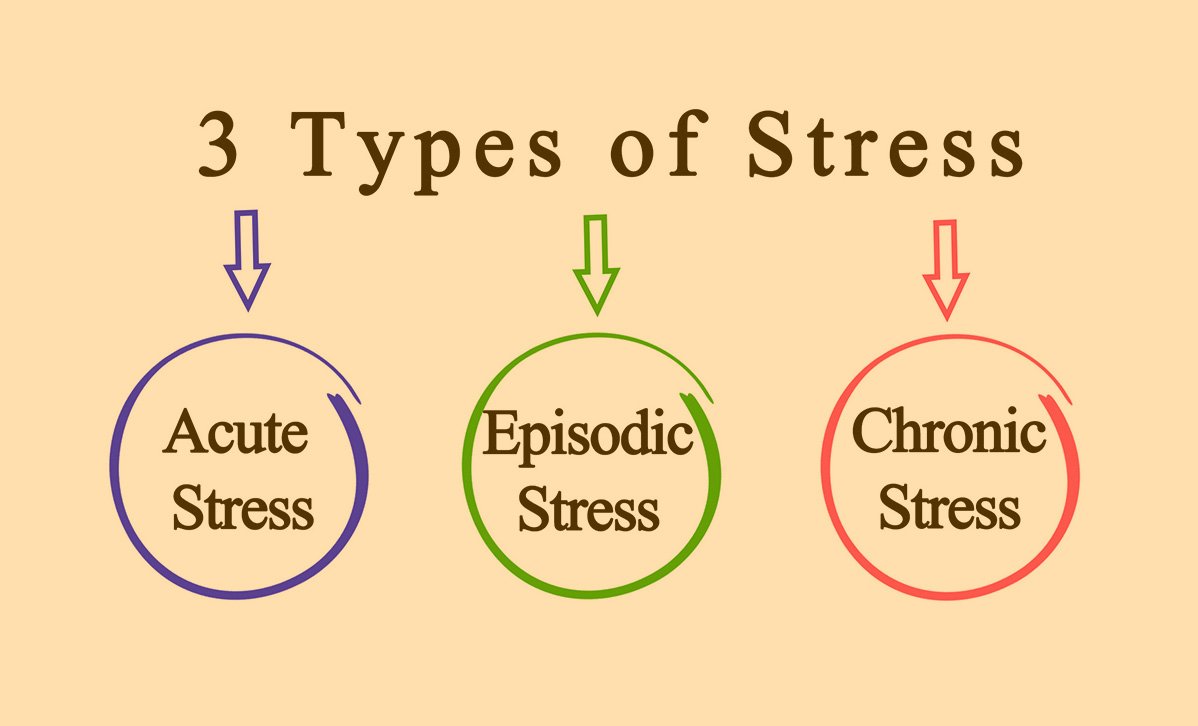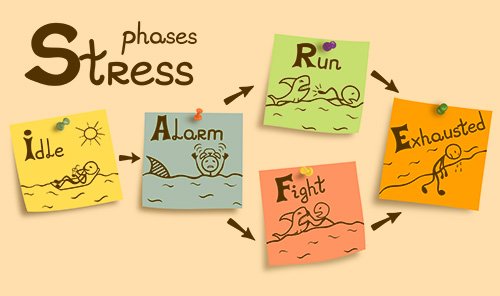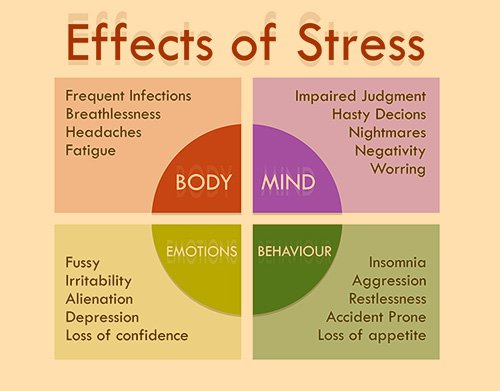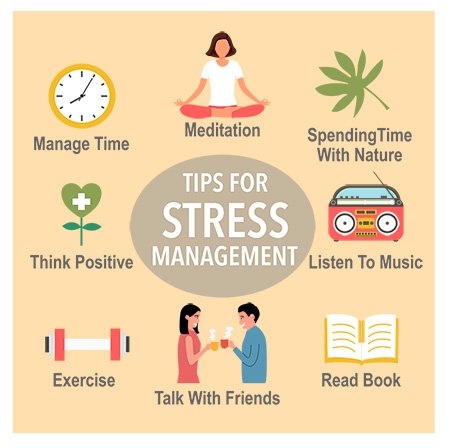- Be Well – Live Your Best Life
- Be Here Now, Why Mindfulness Matters
- Stress Matters, How to Deal with It
Stress matters, especially In today’s fast-paced and demanding world It can become a pervasive part of life. While stress is a natural response to challenges, prolonged or chronic stress is not. It can have significant negative impacts on both mental and physical well-being. It’s important to understand the reasons behind stress. We should then implement effective coping strategies, crucial for maintaining a healthy and balanced lifestyle.
Stress is a natural and adaptive response to challenging situations or perceived threats. It triggers the body’s “fight or flight” response. It can also release hormones, such as cortisol and adrenaline. This prepares the body to respond to perceived danger. While acute stress can be beneficial in certain situations, chronic or prolonged stress can be detrimental. This condition affects both physical and mental health.
“What you’re supposed to do when you don’t like a thing is change it. If you can’t change it, change the way you think about it. Don’t complain.” ―Maya Angelou
Types of Stress
1. Acute Stress
This is the most common form of stress. It’s often short term and can be triggered by specific events. Situations such as a deadline at work, an argument, or a challenging situation. Once the stressor is removed or resolved, the body returns to its normal state.
2. Episodic Acute Stress
Some individuals experience acute stress frequently. This type of response creates a pattern known as episodic acute stress. This often results from a chaotic lifestyle, where individuals may feel overwhelmed by multiple stressors.
3. Chronic Stress
Chronic stress occurs when stressors persist over an extended period. This can be related to ongoing issues like financial problems, work-related stress, or long-term health concerns. Chronic stress can lead to a range of health problems if not addressed.
4. There Are Also Traumatic Stressors
Exposure to traumatic events, such as accidents, natural disasters, or violence, can lead to traumatic stress. This type of stress can have lasting effects and may require professional intervention for effective management.
Understanding stress, its types, and its effects is the first step in realizing why stress matters. This knowledge will help to establish effective stress management. Implementing healthy coping strategies can contribute to a more balanced and resilient life in the face of life’s challenges.
Why Stress Matters?
I. Physical Health Implications
Stress, particularly chronic stress, can have profound implications on physical health. The body’s response to stress involves the activation of the “fight or flight” mechanism. The releasing of certain hormones can impact your health. The “Fight or Flight” response is adaptive. However, chronic activation of stress responses can lead to various physical and mental health issues. Here are some common health implications of chronic stress:
- Cardiovascular Problems
- Weakened Immune System
- Gastrointestinal Issues
- Weight Gain or Loss
- Musculoskeletal Issues
- Skin Conditions
- Accelerated Aging
- Impact on Pre-existing Conditions
- Increased Risk of Chronic Diseases
II. Mental Health Consequences
Stress matters because it can have significant and far-reaching consequences on mental health. Stress is a natural response to challenging situations. However, chronic or prolonged stress can lead to a variety of mental health issues. Here are some common mental health consequences of stress:
1. Anxiety Disorders
Chronic stress is a major contributing factor to the development and exacerbation of anxiety disorders. Individuals may experience heightened feelings of worry, fear, and apprehension. This leads to conditions such as generalized anxiety disorder (GAD), panic disorder, and social anxiety disorder.
2. Depression
Prolonged exposure to stress can contribute to the onset of depression. Stress-related factors, including a sense of helplessness, hopelessness, and a feeling of being overwhelmed. All of which can significantly impact mood and contribute to the development of depressive disorders.
3. Burnout
Chronic stress in the workplace or personal life can lead to burnout. To describe burnout is to view it as a state of physical, emotional, and mental exhaustion. It is also characterized by feelings of cynicism, detachment, and a reduced sense of accomplishment.
4. Cognitive Impairment
Stress matters because it can impair cognitive function, affecting memory, attention, and decision-making abilities. Individuals under chronic stress may find it challenging to concentrate, solve problems, and effectively process information.
5. Mood Swings
Stress can contribute to mood swings, irritability, and emotional instability. Fluctuations in mood may impact relationships and overall emotional well-being.
6. Sleep Disorders
Chronic stress is a common contributor to sleep disturbances. This disorder includes insomnia and disrupted sleep patterns. Sleep disorders further exacerbate stress. It creates a cycle of poor mental health and impaired sleep.
7. Substance Abuse and Addiction
Some individuals may turn to substances such as alcohol or drugs to cope with stress. This can lead to substance abuse or addiction, further complicating mental health issues.
8. Eating Disorders
Stress can be a trigger for eating disorders such as excessive eating, bulimia, or anorexia nervosa. There is a relationship between stress and eating disorder according to the National Liibrary of Medicine. Some eating disorder may be influenced by a desire for control or coping with emotional distress.
9. Increased Risk of Suicidal Thoughts
Chronic stress has been linked to an increased risk of suicidal thoughts and behaviors. The emotional strain and feelings of hopelessness associated with chronic stress can contribute to severe mental health challenges.
10. Social Isolation
Coping with chronic stress may lead to social withdrawal and isolation. Individuals experiencing stress may find it challenging to engage in social activities, impacting their social support networks.
11. Exacerbing of Pre-existing Mental Health Conditions
Individuals with pre-existing mental health conditions may experience heightened symptoms in response to chronic stress. Stress can act as a trigger for conditions such as post-traumatic stress disorder (PTSD) or depressive disorders.
12. Reduced Coping Mechanisms
Chronic stress can deplete an individual’s ability to cope effectively with challenges. This reduced resilience may make it difficult to navigate stressors, leading to a sense of helplessness.
13. Impaired Self-Esteem
Chronic stress may contribute to feelings of inadequacy, failure, or diminished self-worth. Negative thoughts and self-perceptions can impact overall self-esteem and confidence.
Related: Self-Confidence, Seven Strategies To Boost Yours Now
III. Impact on Relationships
High levels of stress can strain relationships with family, friends, and colleagues. Irritability, mood swings, and reduced patience often accompany stress, affecting communication and the ability to connect with others.
IV. Reduced Productivity and Performance
Chronic stress can impair cognitive function, creativity, and problem-solving abilities. This often leads to reduced productivity at work or in daily tasks. The constant feeling of being overwhelmed can hinder the ability to meet goals and fulfill responsibilities.
V. Behavioral Changes
Individuals under chronic stress may resort to unhealthy coping mechanisms. Overeating, substance abuse, or withdrawal from social activities falls within this category. These behaviors can further compromise physical and mental health.
We Know Stress Matters, But How Do We Deal with It?
1. Identify Sources of Stress
Understanding the root causes of stress is the first step in managing it. Identifying specific stressors allows individuals to develop targeted coping strategies.
2. Practice Mindfulness and Relaxation Techniques
Mindfulness meditation, deep breathing exercises, and progressive muscle relaxation can help ease stress. These techniques promote a sense of calm and can be practiced regularly to build resilience.
3. Establish Healthy Boundaries
Setting realistic expectations and boundaries in personal and professional life is crucial. Learning to say ‘no’ when necessary and prioritizing self-care can prevent being overwhelmed.
4. Physical Activity
Regular exercise is a powerful stress reducer. Physical activity releases endorphins, which act as natural mood elevators. Even a brief daily walk can have significant positive effects.
5. Maintain a Support System
Share feelings and concerns with trusted friends, family, or a mental health professional. A support system can provide valuable perspective, advice, and emotional comfort.
6. Time Management
Efficient time management can reduce feelings of being overwhelmed. Breaking tasks into manageable chunks, prioritizing, and setting realistic deadlines can make responsibilities more manageable.
7. Healthy Lifestyle Choices
Adequate sleep, a balanced diet, and hydration are essential for stress management. These factors contribute to overall well-being and resilience in the face of challenges.
8. Seek Professional Help
If stress becomes overwhelming, seeking the help of a mental health professional is crucial. Therapy and counseling can provide tools and strategies to cope with stressors effectively.
9. Engage in Hobbies and Relaxing Activities
Engaging in activities that bring joy and relaxation can counteract the adverse effects of stress. Whether it’s reading, gardening, or pursuing a creative hobby, allocating time for enjoyable activities is vital.
10. Cultivate a Positive Mindset
Adopting a positive mindset can significantly impact how stress is perceived and managed. Focusing on gratitude, positive affirmations, and reframing negative thoughts contribute to a more resilient outlook.
Related: How to use cognitive reframing.
Summary
Stress matters because it is inevitable and can impact our lives negatively. However, it can be managed through intentional and proactive strategies. A hugh part of managing stress is recognizing the importance of stress management. When we implement coping mechanisms and seek support when needed, we can often control stress. What we manage stress, how perceive it, can be crucial. We need to acknowledge that stress matter. View its impact on our lives and take steps towards reducing it. Our overall well-being in the face of life’s challenges matters. – Be Well.














